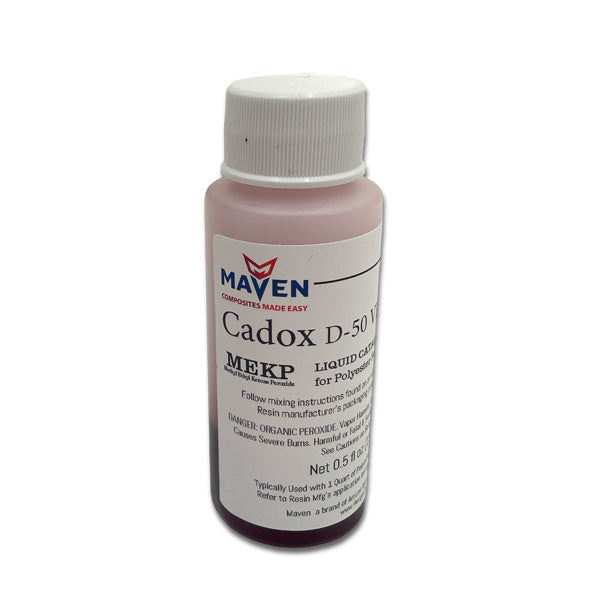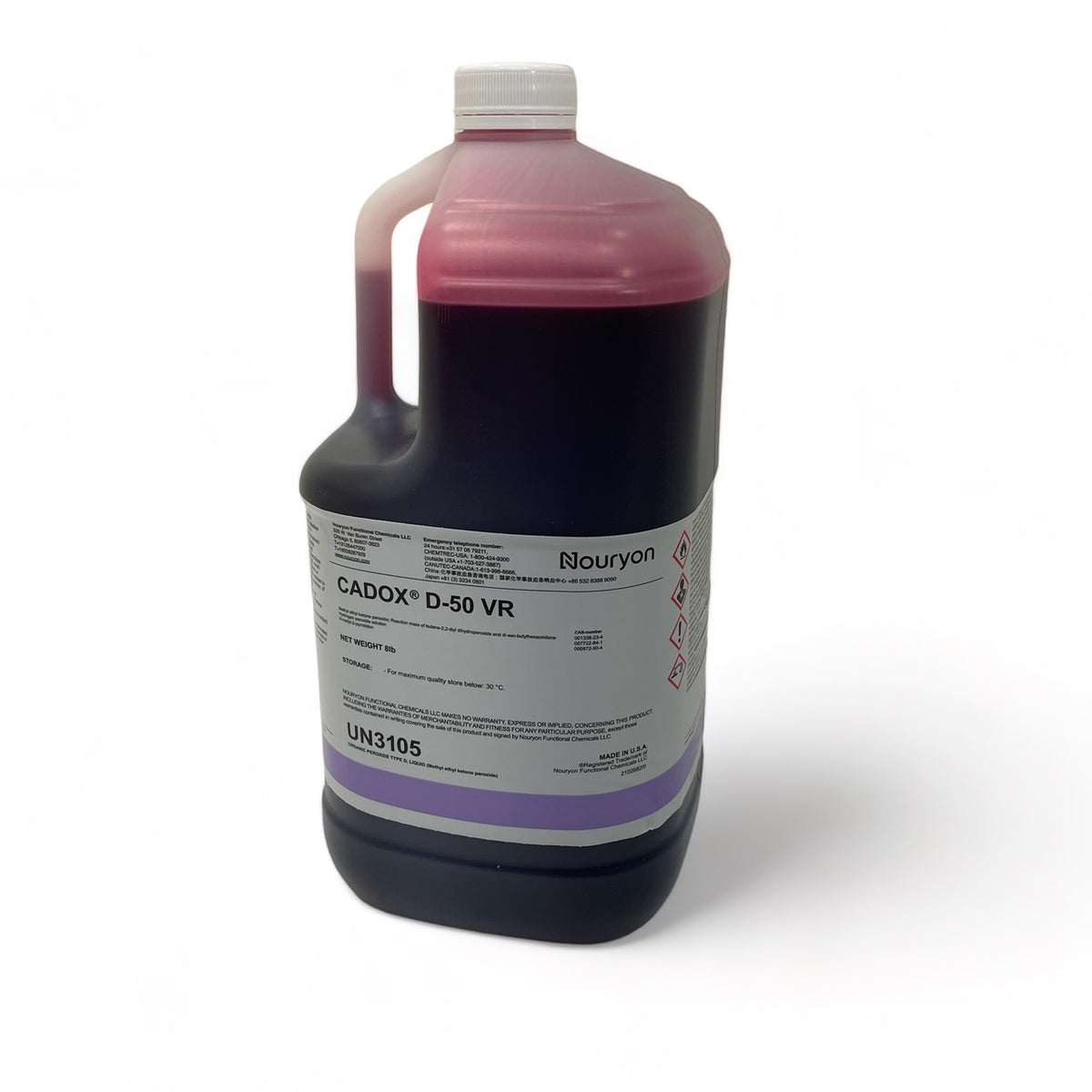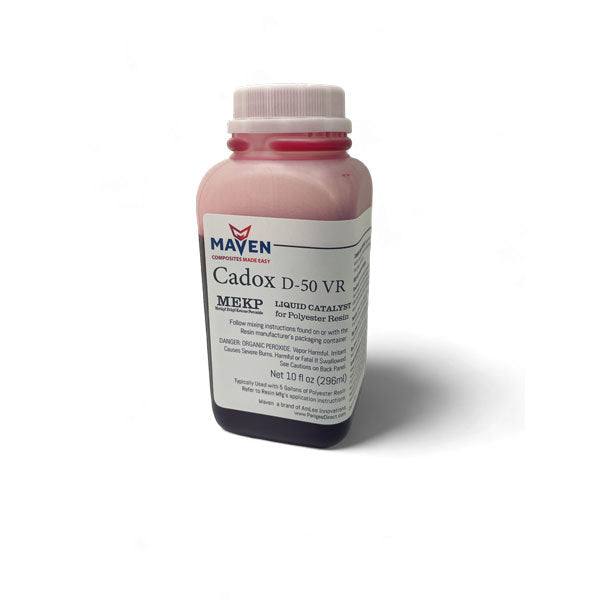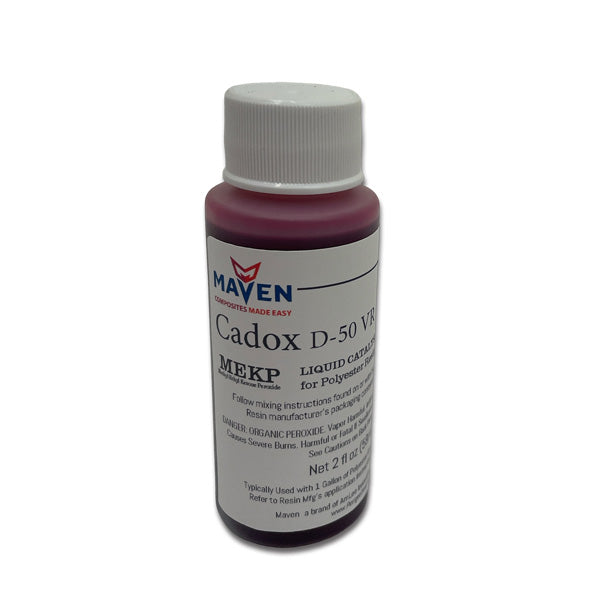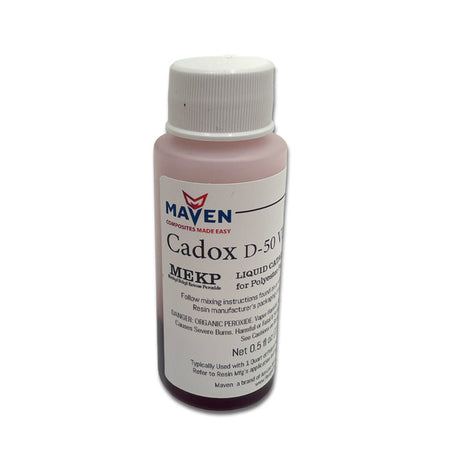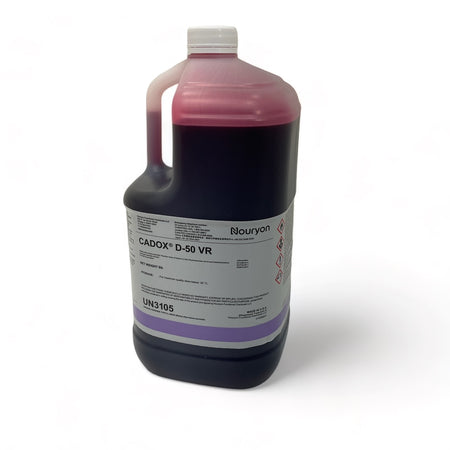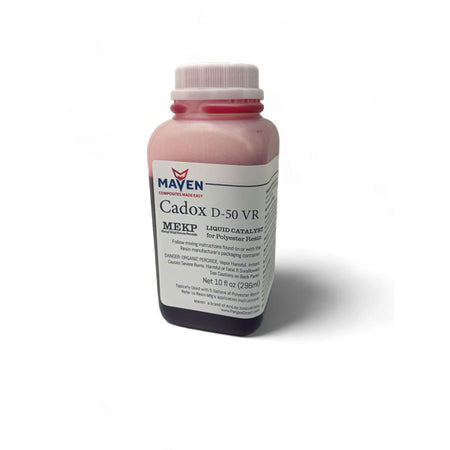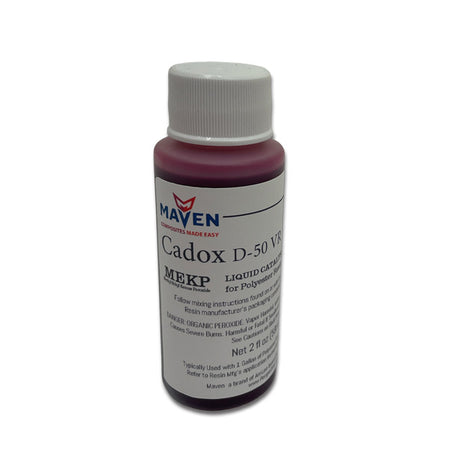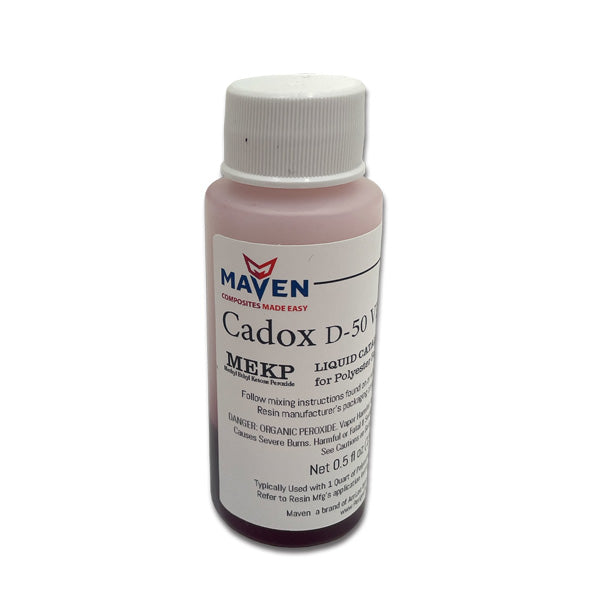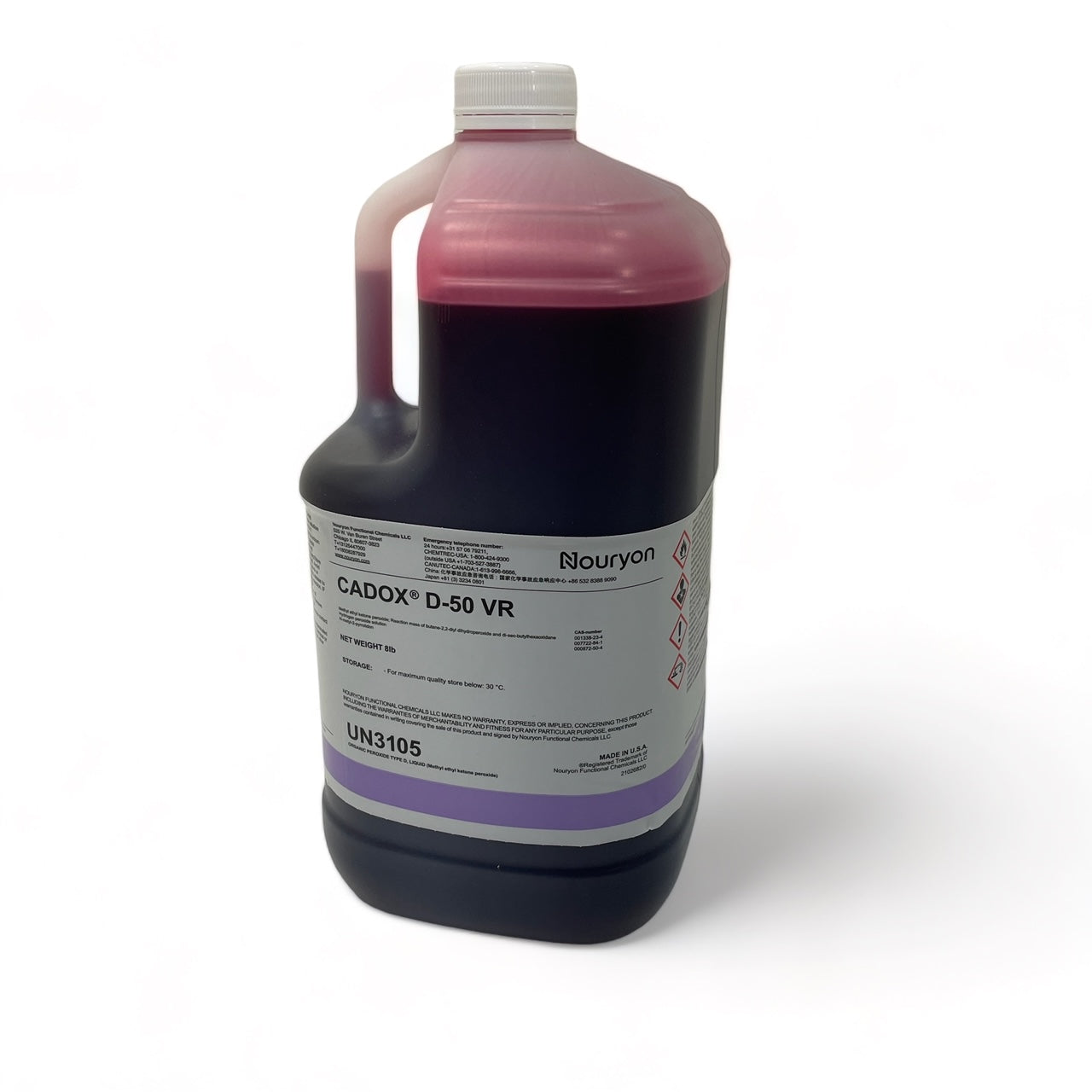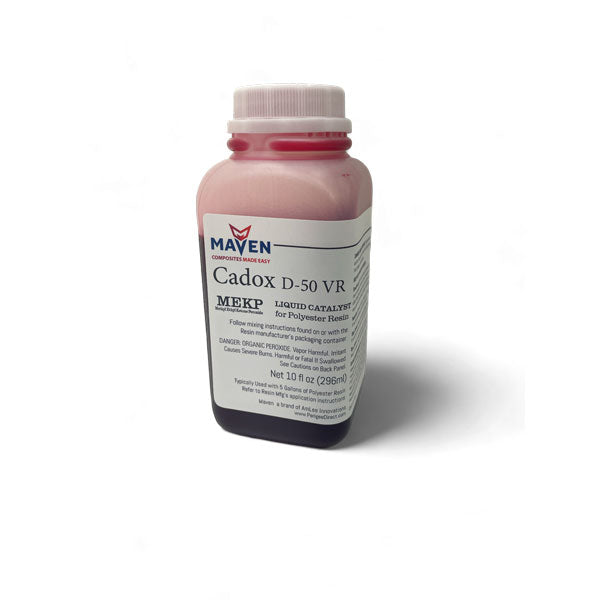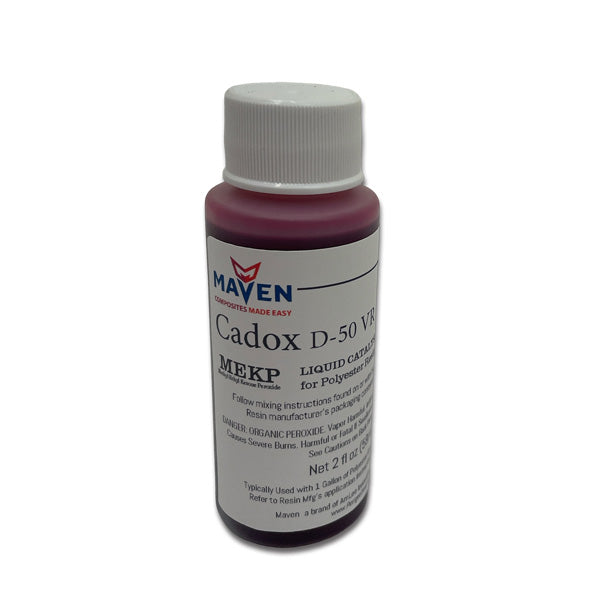Cadox D-50 VR Vanishing Red MEKP Hardener / Liquid Catalyst for Polyster & Vinyl Ester Resins (Methyl Ethyl Keytone Peroxide)
Product details
- Type Activators
- Vendor Cadox by Nouryon
- SKU CADOX_D-50VR_0.5oz
Cadox D-50 VR MEKP, the Industry-Standard Catalyst for Polyster Resins, Vinyl Ester Resins and Gel Coats
MEKP (Methyl Ethyl Ketone Peroxide) is a catalyst used in composites manufacturing for polyester and vinyl ester resins and gel coats. It reacts with the resin (typically Part-A in a 2-part system) to cure it from a reactive liquid into an inert/non-reactive solid. It is used in varying ratios, generally between 1%-3%, depending on the product being used.
The Cadox D-50 VR is formulated with the convenient Vanishing Red Dye that helps the technicians determine fully-cured vs. uncured material through the installation process.
MEK-P Hardener is available in a variety of sizes: 1/2 fl oz ( ounce bottle (#69-A) One gallon (#69-D) One case of four gallons (#69-E
Resin formulas that require MEK-P as their curing agent is often packed in a 2-part system or kit with enough MEKP pre-packed to catalyze the resin. However, MEKP may be purchased individually as well.
MEKP is an organic peroxide and should always be handled with care, using the appropriate Personal Protective Equipment, and always referencing the SDS and TDS before use to gain context.
Important Note: Specific curing characteristics and processing parameters can vary based on the type of resin, ambient conditions, and specific composite application. Always refer to the resin manufacturer's TDS, SDS, and all guidelines recommended curing instructions for proper use and expected results.
Important information about the use of MEKP as a catalyst in composites:
- Role of MEK-P as the Catalyst: In composites, a catalyst is used to start and even accelerate the curing (hardening) process of a resin formula/system. MEKP is a class of free-radical initiators, meaning that it triggers the polymerization reaction in polyester and vinyl ester resins, and leads to the formation of an inert solid with durable properties.
- Mixing with a Resin: MEK-P is typically mixed with a resin formula just before application/installation/pouring. It is what initiates the reactive process, that is typically defined by different popular setting steps: 1) set time/working life/pot life, 2) handling strength time/functional cure time, and 3) full cure time. The ratio of resin formula (typically labeled Part-A) and MEK-P catalyst (typically labeled Part-B) is carefully controlled and measured to achieve particular desired curing characteristics and processing times. The specific mixing ratio and mixing instructions may vary depending on the resin manufacturer's recommendations and application instructions.
- Curing Process: Once MEKP is mixed with the resin, a chemical reaction starts that causes the resin to crosslink and solidify. The curing process can be accelerated by applying heat, which helps to speed up the reaction and shorten the overall curing time. Refer to the resin manufacturer's TDS and recommendations and application instructions for detailed information about Set Times, Handling Strength Times, and Full Cure Times that can be expected during the curing process.
- Safety Precautions: MEKP is a hazardous substance and should be handled with caution. It is necessary to read the formula's TDS and SDS, and all additional manufacturer's literature on applying MEK-P into their resin systems. This is necessary to gain context on safely storing, handling, applying, and discarding this chemical. MEK-P is flammable, corrosive and can release toxic fumes, so appropriate safety measures, such as wearing protective gloves, goggles, and working in a well-ventilated area, should be followed. Always consult the safety data sheet (SDS) and follow the guidelines for proper handling, storage, and disposal.
- Shelf Life: MEKP has a limited shelf life and can degrade over time, affecting its effectiveness as a catalyst. It is important to check the expiration date and use fresh MEKP to ensure reliable curing performance.

